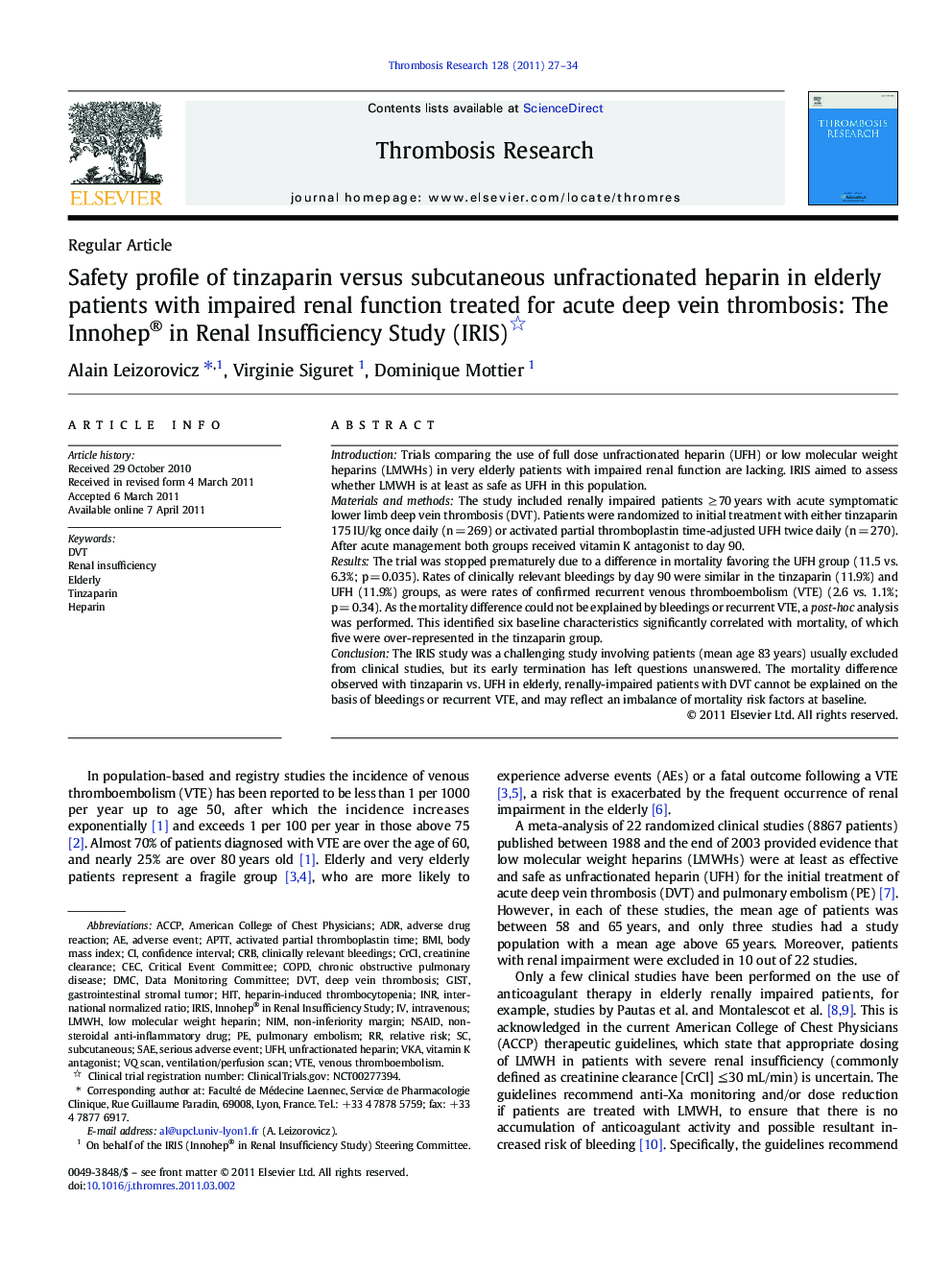| Article ID | Journal | Published Year | Pages | File Type |
|---|---|---|---|---|
| 6003599 | Thrombosis Research | 2011 | 8 Pages |
IntroductionTrials comparing the use of full dose unfractionated heparin (UFH) or low molecular weight heparins (LMWHs) in very elderly patients with impaired renal function are lacking. IRIS aimed to assess whether LMWH is at least as safe as UFH in this population.Materials and methodsThe study included renally impaired patients â¥Â 70 years with acute symptomatic lower limb deep vein thrombosis (DVT). Patients were randomized to initial treatment with either tinzaparin 175 IU/kg once daily (n = 269) or activated partial thromboplastin time-adjusted UFH twice daily (n = 270). After acute management both groups received vitamin K antagonist to day 90.ResultsThe trial was stopped prematurely due to a difference in mortality favoring the UFH group (11.5 vs. 6.3%; p = 0.035). Rates of clinically relevant bleedings by day 90 were similar in the tinzaparin (11.9%) and UFH (11.9%) groups, as were rates of confirmed recurrent venous thromboembolism (VTE) (2.6 vs. 1.1%; p = 0.34). As the mortality difference could not be explained by bleedings or recurrent VTE, a post-hoc analysis was performed. This identified six baseline characteristics significantly correlated with mortality, of which five were over-represented in the tinzaparin group.ConclusionThe IRIS study was a challenging study involving patients (mean age 83 years) usually excluded from clinical studies, but its early termination has left questions unanswered. The mortality difference observed with tinzaparin vs. UFH in elderly, renally-impaired patients with DVT cannot be explained on the basis of bleedings or recurrent VTE, and may reflect an imbalance of mortality risk factors at baseline.
